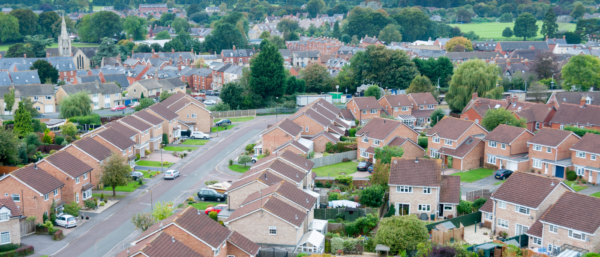The Sustainability Reporting Standard for Social Housing: A New Path to Investment.

At a time when environmental, social, and governance (ESG) considerations are increasingly central to investment decisions, the social housing sector is stepping up to meet this shift. In 2021, the Sustainability Reporting Standard for Social Housing (SRS) was launched by Sustainability for Housing, an organisation dedicated to promoting sustainable growth within social housing. This initiative seeks to transform how finance is accessed in the sector by aligning with the growing focus on ESG credentials among investors.
The development of the SRS was prompted by a white paper released in May 2020, which was subsequently opened for public feedback. This move was driven by the growing importance of ESG in investment analysis, as recognised in conversations with major investors. These discussions revealed that ESG factors are becoming as critical to the investment evaluation process as traditional financial indicators, such as balance sheets and profit and loss statements. A prominent UK pension fund investor’s reflection further highlighted this shift, indicating a fundamental change in how investments are assessed.
So, what is the Sustainability Reporting Standard?
The SRS introduces a standardised reporting framework for the social housing sector, enabling providers to publish annual results. This system allows social housing organisations to benchmark their performance against the sector average, providing a clear picture of where they stand. By doing so, the SRS not only facilitates transparency and accountability but also encourages continuous improvement and sustainability efforts across the sector.
What exactly does ESG entail?
ESG serves as an umbrella term encompassing a business’s environmental impact, social contributions, and the integrity of its governance. It demands a holistic integration of these practices into a business’ operational and strategic fabric, assessing the sustainability and societal impact of its business model. The three pillars of ESG—environmental, social, and governance—each play a unique role in shaping a business’ ESG footprint.
Environmental
Environmental initiatives within a company focus on reducing its ecological footprint through measures such as energy efficiency, renewable energy adoption, and sustainable supply chain practices. This aspect champions the transition towards a net zero operation, underlining the importance of minimising environmental impact through innovative, green solutions. The SRS specifically targets the EPC improvement of social housing providers’ stock, ensuring that they have plans in place to become net zero.
Social
Social considerations underscore the business’ role in fostering a fair, equitable society. This involves ensuring workplace safety, promoting diversity and inclusion, and supporting community welfare. The social dimension of ESG emphasises ethical practices, from securing labour rights to safeguarding customer data, reflecting a business’ broader responsibility towards societal wellbeing.
Governance
Governance, the third pillar, revolves around ethical leadership, transparency, and accountability in business operations. It seeks to establish robust frameworks for decision making, financial reporting, and ethical conduct, ensuring that businesses operate with integrity and transparency, particularly in their environmental and social endeavours.
What does the SRS mean for the social housing sector?
Since its launch in 2020, the Sustainability Reporting Standard has been widely adopted throughout the UK, with over 100 housing providers, both large and small, implementing it. This achievement reflects the SRS’s initial goal of broad adoption across the sector. Furthermore, it has gained the endorsement of 36 funding bodies, managing assets totalling over £1 trillion. This group includes prominent investment firms like Legal & General as well as leading banks such as Lloyds and NatWest.1
The adoption of the SRS within the social housing sector signifies a clear commitment to integrating ESG principles. This alignment not only opens up new avenues for investment but also attracts a growing interest from investors focused on ESG criteria. According to research by Charles Stanley, there’s an increasing trend towards ESG investments, with many investors intending to expand their ESG portfolios in the coming years.
The SRS marks a significant step forward for the social housing sector, aligning it with the broader ESG investment movement. By adopting the SRS, social housing providers showcase their dedication to sustainable, equitable, and ethical practices, making them more attractive to investors and contributing to a more sustainable and fair society. Looking ahead, the SRS will continue to play a crucial role in steering the social housing sector towards a future where sustainability and financial viability are intertwined.
How can Sava support you?
Sava Intelligent Energy can assist with reporting on multiple criteria within the SRS framework. In-built charts within the user dashboard can help report on the proportion of your stock within certain EPC bands, and our consultancy support can help provide assistance with a net zero strategy for your stock. Contact us on 01908 442244 for an informal chat and to find out more.
1 Figure taken from the Sustainability for Housing figures accessible at https://sustainabilityforhousing.org.uk/
This article was written by Sava’s Energy Data Consultant, Samuel Lott. Browse more articles on our News and Views page.